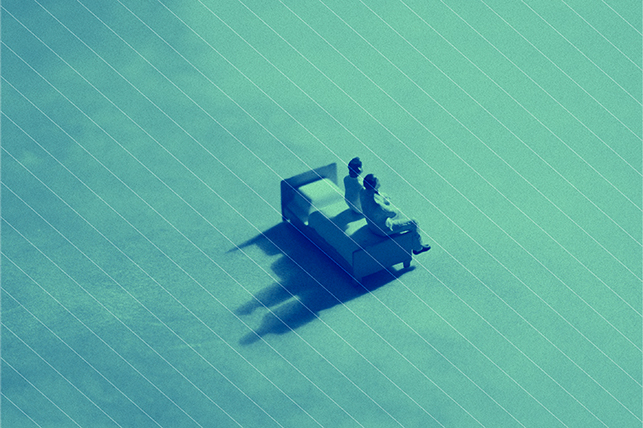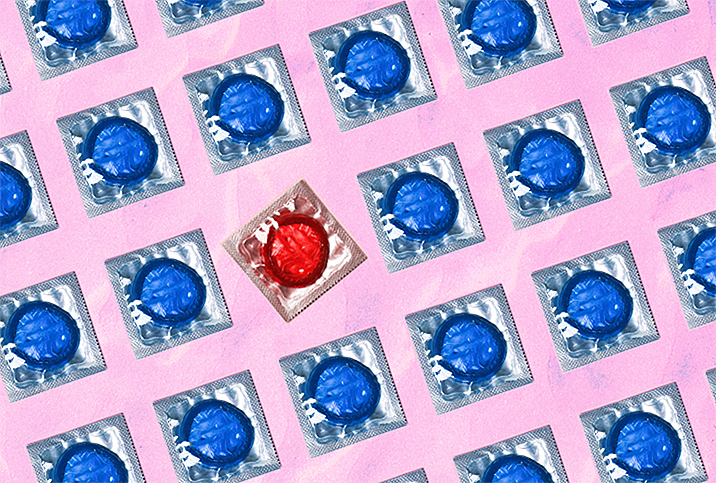Treatment for OCD and Its Impact on Sexual Health

Obsessive-compulsive disorder (OCD) can be a complicated mental health disorder, but the good news is there are different treatment options and they all tend to be fairly successful. However, without treatment—and even with treatment—there can be challenges you may face in terms of your sexual health, libido and maintaining intimate relationships.
To learn more about treatment for OCD and the potential impact of the condition on a person's sex life, we spoke to several experts who help patients lead healthier and more comfortable lives.
Treatment options, side effects and costs
A variety of treatment options are available for obsessive-compulsive disorder, and usually, a multifaceted approach is the most effective way to help an individual manage their symptoms and minimize the resultant impact of the condition on their lifestyle.
"Talk therapy is the most effective treatment. Medication that helps control mood is sometimes beneficial to treat anxiety or depression that results from OCD," said Rosalind Pistilli, L.C.S.W., a therapist and the executive director of Open Arms Counseling and Transition Center in Colorado. "These treatments are usually covered by insurance benefits."
William Anixter, M.D., a psychiatrist at CooperRiis Healing Community in Asheville, North Carolina, agreed that there are two treatment options that are best for obsessive-compulsive disorder.
"One is pharmacotherapy—in other words, medication—and the second is behavioral therapy, especially a form of behavioral therapy called ERP, which stands for exposure and response prevention," he said. "ERP means getting people to face the thing that they are anxious about and not engage in rituals. The way OCD works is that obsessions create anxiety and rituals neutralize anxiety. So it's a back-and-forth process. Using ERP can help with these obsessions and compulsions."
Anixter said the medications that work for obsessive-compulsive disorder, with a couple of exceptions, are primarily antidepressants called selective serotonin reuptake inhibitors (SSRIs), such as Prozac, Zoloft, Paxil and Lexapro.
Anna Jackson, a psychotherapist in London, explained that another good therapeutic approach to treating OCD is cognitive behavioral therapy (CBT).
"CBT is a goal-orientated approach. Typically, six to 12 sessions are needed to see a notable result," she added.
While she noted that there aren't really side effects to therapy per se, the side effects of the antidepressants used to treat OCD can include loss of appetite, low mood, low libido and dizziness.
OCD and sexual health and performance
Sexual relationships and intimacy are a major component of interpersonal relationships, and mental health conditions, such as obsessive-compulsive disorder, also can certainly affect your sex life, libido and intimacy.
Anixter noted that there is a fair amount of literature about the impact OCD has on sexual health and sexual performance.
"One of the obsessions that tend to plague people [with OCD] is about [their] sexuality," Anixter explained. "So they might have a thought that maybe they're not straight. They may have a thought that maybe they're gay or nonbinary. Maybe they're interested in things that society sees as taboo. Maybe they're interested in family members, which is disturbing and not realistic and really counter to the person's knowledge of themselves and their values, which can be very anxiety-producing."
He added that other common disturbing and intrusive thoughts individuals with OCD may have can relate to sexual activity and intimacy.
"Sometimes the thoughts may be, 'What if I harm my partner during intimacy? What if I grab them too hard and injure them?'" Anixter said. "And then there's the associated OCD symptoms like, 'What if I become contaminated by body fluids, by semen, by sweat or vaginal secretions?'"
All of these challenges can interfere with having healthy, pleasurable and "normal" sexual relations with another person that feel satisfying, safe and close in nature.
"OCD can have a deep impact on sexual health due to interfering with the ability to be present in the moment during intimacy," Pistilli said. "If the individual is experiencing intrusive thoughts, these thoughts may be present during intimacy. If the intrusive thoughts are sexual in nature, there can be shame and guilt attached to sexual activity, which may result in a diminished desire to participate in sex or intimacy at all. If there are sexual intrusive thoughts or sexual compulsion, including rituals, that must be performed or conditions that must exist, the partner may be afraid to discuss these problems with their partner or therapist."
The complications of OCD
"There are a number of complications related to OCD which can damage the quality of life. Some people with OCD spend a great deal of time on certain rituals, such as washing. For example, dermatitis can be a result of excessive washing," said Faisal Tai, M.D., a psychiatrist and the CEO of Psychiatry of Texas, based in Houston. "Some individuals with OCD have extra challenges being at work or school or interacting in social settings due to their obsessive thoughts and compulsions."
Jackson added that people with OCD can develop social anxiety due to their differences.
"When OCD is largely driven by shame, the individual may start to find it difficult to socialize with others and, therefore, may develop social anxiety," she explained.
Anixter noted that the medications typically used for OCD can have sexual side effects, which can create complications in the relationships of the individual.
"I have seen many, many cases where someone is treated—maybe more for depression than OCD—by a primary care doctor with a prescription for Lexapro, Prozac or Zoloft and begin to experience sexual problems and sexual side effects, and they've not learned that that is a common side effect of the medication," he said. "And it produces problems—sometimes devastating problems—in a relationship. So a man may begin to experience decreased libido. His wife might say, 'I know you, it's not like you to go for a week or two weeks without wanting some and you're not asking me for it.' Not having the explanation that it was a side effect of the medication plants the seed of doubt regarding infidelity in a relationship, and I've seen relationships really damaged by that."
Resources for patients and caregivers
"There are many websites that provide good resources for understanding OCD, and family therapy is very beneficial for helping family members to understand what the patient is experiencing and how to support them through their treatment," Pistilli said.
Jackson provided a few specific recommendations for resources.
"I love the book 'Brain Lock,' by Jeffrey Schwartz," she shared. "It provides a four-step technique that the reader can put into practice. It's both simple and effective. Local authority councils often run group sessions for mental health disorders, OCD included. Those suffering from OCD can often feel a deep sense of loneliness and isolation. Knowing they aren't alone can really help."
Click this link to the International OCD Foundation for some helpful advice to find the right therapist, treatment options and other resources that can help you manage your condition and live your best life.


















